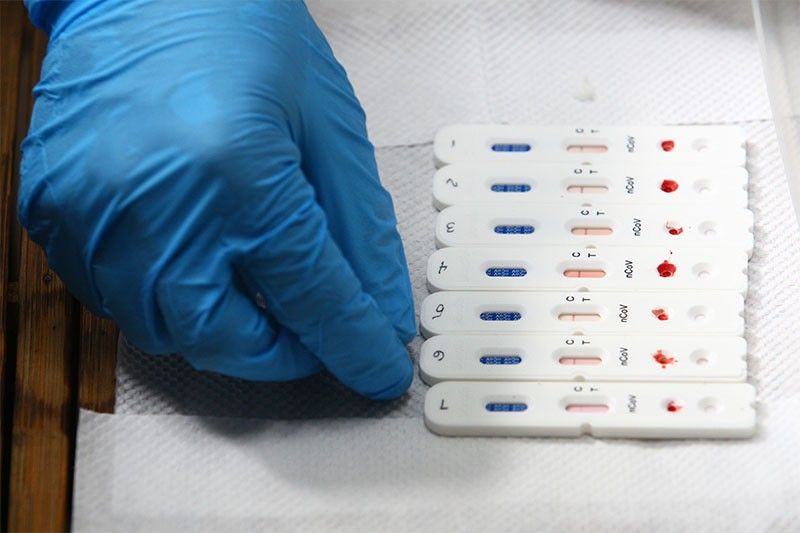DOH: Rapid antibody tests not for screening COVID-19 cases but still useful

MANILA, Philippines — There is no need to prohibit the use of rapid antibody tests in the country, the Department of Health said Monday but cautioned against using this type of testing to screen people for possible coronavirus infection.
Medical organizations have been sounding the alarm over the use of rapid antibody testing, saying results might create a false sense of security that may have contributed to the spread of COVID-19 in the Philippines.
But DOH Undersecretary Maria Rosario Vergeire said rapid antibody tests should be used appropriately for them to be effective. Rapid tests detect the presence of antibodies in the blood of people believed to have contracted COVID-19
“Hindi naman kailangang i-ban kasi may gamit pa rin siya sa ating response,” Vergeire said in a briefing Monday.
(We do not need to ban rapid antibody tests because it still has uses in our response.)
“Pwedeng gamitin ang rapid antibody test sa mga pasyente na naka-recover na or pwede nang ma-tag as recovered,” she added.
(Rapid antibody test can be used on patients who have recovered or can be tagged as recovered.)
Under the country’s new discharge and recovery criteria for confirmed coronavirus cases, repeat testing using reverse transcription polymerase chain reaction tests (RT-PCR) or swab tests is no longer required.
But the health official stressed that rapid antibody tests should not be used to screen people for COVID-19.
RT-PCR testing is considered the “gold standard” in coronavirus testing.
The government is also eyeing the use of antigen tests, which quickly detect fragments of proteins found on or within the virus by testing samples collected from the nasal cavity using swabs. While antigen testing can yield results in minutes, it is not as sensitive as RT-PCR tests and may not detect all active infections.
Negative results from an antigen test may need to be confirmed with RT-PCR tests.
- Latest
- Trending































